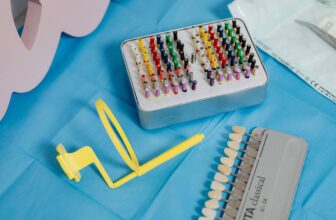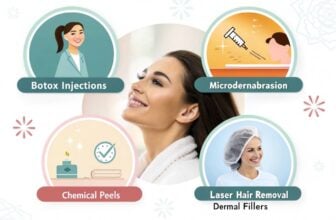The male body relies on hormones to control numerous body operations, which affect both physical vitality and emotional behavior together with sexual wellness.
Testosterone levels, together with other hormones, naturally decrease within men during their aging process, thus resulting in observable shifts. Fields of ageing naturally transform over time but specific hormonal alterations negatively impact the life quality of men.
Men who identify hormonal imbalance symptoms will benefit from getting medical care based on their awareness of when to request treatment.
This article investigates important symptoms that indicate requiring hormone therapy and introduces accessible treatment approaches for hormone restoration.
Understanding Hormonal Changes in Men
Male testosterone production begins to decrease from age thirty onward at a yearly rate of 1%. The reduction of testosterone regulates sexual desire together with muscle growth, bone health, and mental stability, so both physical and emotional system functioning can suffer.
Both the natural aging process as well as medical problems, including obesity and diabetes or sleep apnea, together with lifestyle problem factors involving diet and alcohol consumption, cause harm to hormone balance.
Excessive stress leads to elevated cortisol production, which subsequently causes new hormonal disharmony within the body. Proper diagnosis of Hormone Therapy for Men requirements depends on the ability to recognize these hormonal changes in patients.Signs That Hormone Therapy May Be Needed for Men
Physical symptoms alongside mental symptoms appear because of unbalanced hormones that negatively affect well-being. Hormone therapy becomes necessary for balance restoration when you notice any combination of these symptoms.
- Low energy and fatigue: Lowered testosterone production causes men to feel abnormally exhausted during their daily activities despite complete sleep. Fatigue weakens motivation, making it hard to stay active and handle responsibilities.
- Decreased libido and sexual performance: Testosterone directly affects sexual drive and performance. Signs of reduced hormone levels include problems with sexual desire, performance, and erectile dysfunction, which warrant medical intervention.
- Mood swings and irritability: Emotional fluctuations caused by hormonal changes produce unpredictable mood changes together with increased irritability. Lack of testosterone causes people to become more irritable with increased emotional sensitivity which affects their mood control system.
- Depression: Symptoms of depression can emerge when hormonal imbalances develop. Men experience depressive symptoms after their testosterone decreases, making them feel down and disconnected from typical activities.
- Decreased muscle mass and strength: Testosterone maintains muscle growth and strength, but reduced levels cause a natural decrease in both. Men who exercise regularly and notice diminished muscle mass may be experiencing low testosterone levels.
- Increased body fat: Testosterone reduction triggers the body to store more fat, particularly around the abdominal regions. Men often experience concurrent loss of lean muscle mass, which modifies their body structure.
Diagnosing Hormonal Imbalances in Men
Thorough diagnosis of hormonal imbalances depends on examinations performed by healthcare experts who also assess symptoms as well as past medical information and physical test results.
A medical evaluation of your symptoms starts with a discussion of fatigue alongside changes to your libido and mood swings.
The combination of your reported symptoms enables doctors to confirm which precise tests will measure hormone levels so they can establish hormone imbalance status.
- Blood Tests
Medical laboratories use blood examinations as their main tool to measure hormone concentrations since they provide exact hormone values in blood samples.
Laboratory blood examinations measure the hormone levels of testosterone and estrogen with cortisol as a supplementary check. The assessment of testosterone values occurs during morning evaluations because this period reflects maximum hormone levels, according to medical experts.
- Physical Exam
A physical exam can show symptoms of hormonal disturbances by examining how body fat distributes or whether a male has enlarged his breast tissue (gynecomastia).
Doctors also check the prostate during the physical examination because hormonal alterations might influence both prostate dimensions and functionality.
- Medical History
Healthcare providers must conduct an extensive evaluation of personal medical records. Hormonal imbalances frequently result from medical conditions, including sleep apnea, diabetes, and obesity, as well as stress-related disorders and obesity.
Hormonal disturbances that develop in men sometimes relate to their lifestyle choices regarding dietary habits and exercise routines, together with alcohol consumption patterns.
- Additional Tests
Further diagnostic procedures with imaging studies such as ultrasound or MRI tests will be required to eliminate pathologies causing hormonal imbalance at the pituitary and other hormone production sites.
Types of Hormone Therapy for Men
Hormone therapy for men is designed to address low testosterone and other hormonal imbalances, offering various treatment options based on individual needs.
- Testosterone Replacement Therapy (TRT)
Among all available treatments for low testosterone, the most popular approach stands as Testosterone Replacement Therapy (TRT). The medication exists in various delivery formats, which include injections together with topical gels creams patches, and pellets.
The health benefits from TRT include better energy levels and restored libido along with improved mood swings, but patients should understand the potential cardiac problems and prostate enlargement risks that come with this treatment.
- Human Chorionic Gonadotropin (HCG) Therapy
The administration of HCG therapy ensures natural testicular testosterone production activation. This therapeutic agent has applications in patients with pituitary disorders or those aiming to protect their fertility capacity, and it tends to appear with TRT as part of the protocol.
HCG delivers effective results but side effects include head pain as well as the retention of fluids in the body.
- Clomiphene Citrate Therapy
The medication clomiphene citrate makes the hypothalamus stimulate higher levels of testosterone in the body. The therapy provides a useful solution to men who need to maintain their fertility potential alongside testosterone improvement.
Clomiphene citrate therapy produces mood instability together with headaches as possible side effects while treating secondary hypogonadism.
Benefits of Hormone Therapy for Men
Using hormone therapy brings various advantages to males who face testosterone deficiencies and impaired hormonal levels.
- Hormone treatment helps decrease tiredness by providing therapeutic benefits that enhance daily energy levels.
- The treatment helps users maintain stable emotions and it reduces their feelings of anger while improving their mind’s clarity together with memory function.
- The therapy improves both sexual desire and erectile function to support better physical intimacy.
- The treatment of hormone therapy enhances physical strength together with supporting muscle growth through its ability to increase testosterone levels.
- Hormone therapy leads to better fat distribution by decreasing body fat accumulation, especially in the abdominal area.
Conclusion
The use of hormone therapy enables men to experience substantial life quality improvements throughout the treatment of hormonal imbalance conditions.
The treatment addresses tiredness together with mood fluctuations, decreased sexual desire, and muscle wastage to bring back physical and emotional wholeness.
FAQs
What are the common signs of hormonal imbalance in men?
Hormonal imbalance in men often presents as low energy, decreased libido, mood swings, muscle loss, and increased abdominal fat. These symptoms signal the need for a comprehensive evaluation.
How is hormone therapy for men diagnosed?
Diagnosis involves a detailed review of symptoms, blood tests for hormone levels (usually in the morning), physical exams, and an assessment of your medical history to determine the best treatment plan.
What treatment options are available for hormonal imbalances?
Treatment options include Testosterone Replacement Therapy (TRT), HCG therapy, and Clomiphene Citrate therapy. Each method is tailored to address specific symptoms and underlying causes.
Are there any risks associated with hormone therapy?
While hormone therapy offers numerous benefits, potential risks such as cardiac issues or prostate enlargement exist. A healthcare provider can help weigh these risks and monitor your progress.





